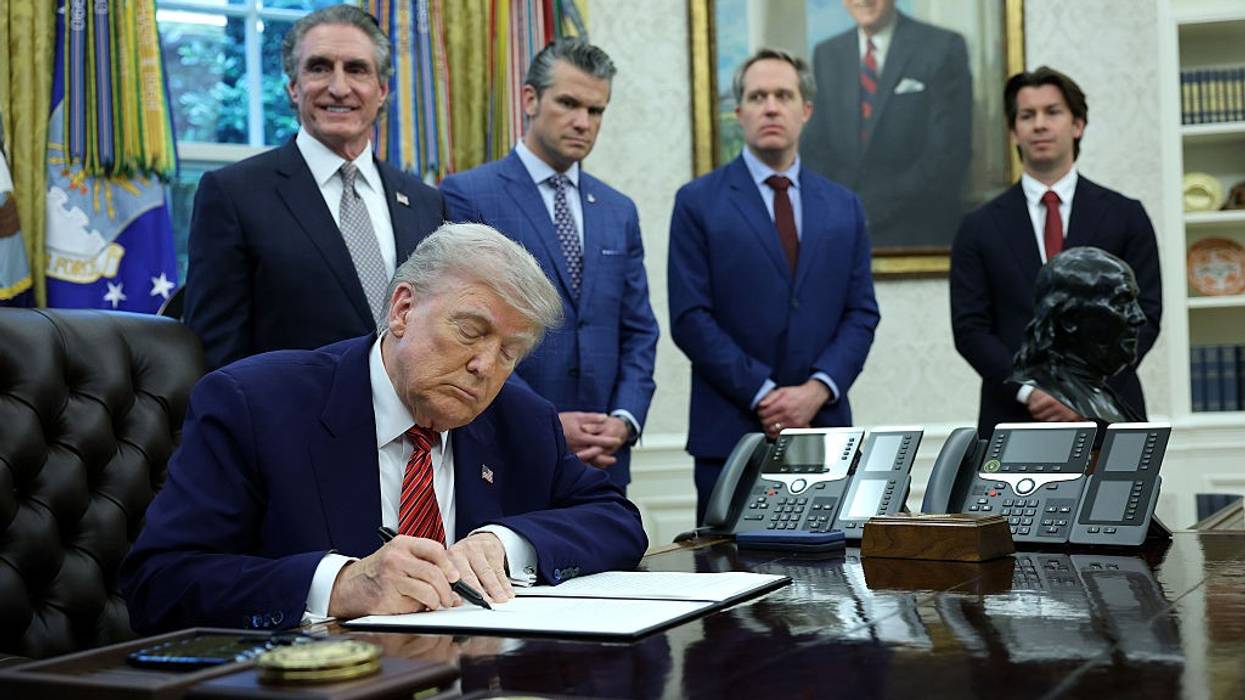Coalition Sues Trump Admin Over 'Unlawful' Approval of LNG Export Project
A lawyer for the plaintiffs argues that the Department of Energy "is using an untested loophole to avoid considering the impacts of this project on Americans’ health and on the environment."
A coalition of green groups filed a lawsuit Tuesday contesting the Trump administration's approval of what would be one of the world's largest liquefied natural gas facilities—permission granted despite the project's threats to frontline communities, the environment, and climate.
The National Resources Defense Council (NRDC) and Earthjustice are representing the Sierra Club, which is suing the US Department of Energy (DOE) for approving Venture Global’s application to export liquefied natural gas (LNG) from the Calcasieu Pass 2, or CP2, terminal, which is now under construction in Cameron Parish, Louisiana.
“We’re suing over DOE’s unlawful approval of this facility that will increase climate-warming pollution and do nothing to lower energy costs for Americans,” NRDC senior attorney Caroline Reiser said. “DOE is using an untested loophole to avoid considering the impacts of this project on Americans’ health and on the environment. The agency also failed to consider how LNG exports could increase US energy prices.”
As Earthjustice explained:
CP2’s pollution, traffic, sprawl, and visual impact would add to the harms the nine overburdened local Gulf Coast communities located near the facility already experience from nearby existing LNG terminals. These communities already bear the burden of other heavy industry and are on the frontlines of the bigger hurricanes and storms fueled by the worsening climate crisis. Approving CP2’s exports will add to environmental injustice, fuel additional climate change, and increase prices for domestic consumers.
CP2 is one of the key projects in what climate campaigners called a "staggering" LNG expansion under former President Joe Biden. In January 2024, his administration announced a temporary pause on DOE approvals of pending and future LNG export applications to nations with which the US did not have free trade agreements. A federal judge appointed by President Donald Trump later ruled the pause illegal.
The United States is the world’s leading natural gas producer and LNG exporter. While the fossil fuel industry often calls LNG a “bridge fuel”—a cleaner alternative to coal that will ease the transition to sustainable energy sources—critics have warned that the fossil gas actually hampers the transition to a green economy. LNG is mostly composed of methane, which has more than 80 times the planetary heating power of carbon dioxide during its first two decades in the atmosphere.
Trump's DOE—headed by former fracking CEO Chris Wright—granted preliminary approval to CP2 last March, with the final green light coming in October. If built as planned, it would export around 20 million metric tons per year of LNG.
"The estimated lifecycle greenhouse gas from this methane gas would be more than the annual emissions of 47 million gas-powered cars, or 54 coal-fired power plants," said NRDC.
CP2 construction has already harmed local communities in Cameron Parish—especially local fishers. Last summer, dredging despoiled hundreds of acres of marshland, burying crab traps and oyster beds, and killing wildlife including the crabs, fish, and shrimp upon which fishers depend for their livelihood.
“We’re routinely seeing less and less catch. LNG has polluted our waters and disrupted the wildlife," one local fisher and dock manager said last year. "The shrimp just do not want to come in because of the LNG projects.”


